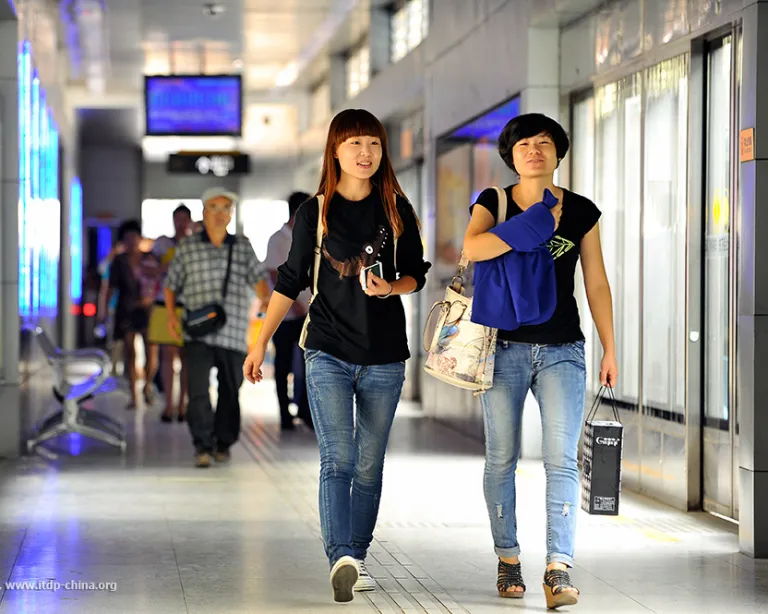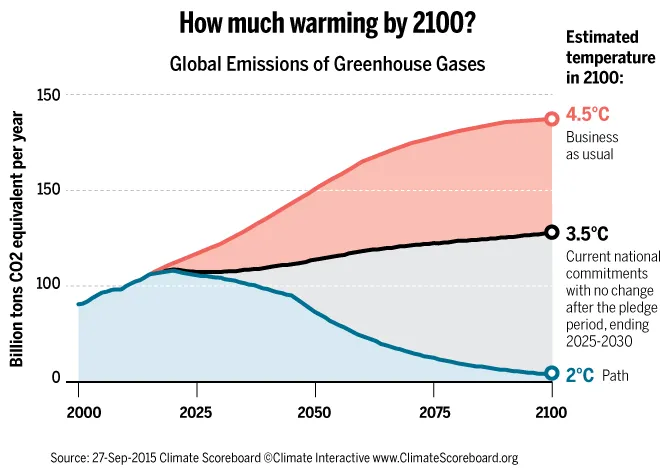The 21st Conference of the Parties (COP21) to the UN Framework Convention on Climate Change (UNFCCC) will be a pivotal moment in global politics, to provide the basis for future progress around climate change mitigation. With Chennai slowly recovering from the disastrous floods in the city over the past weeks, the need for landmark agreements to reduce greenhouse gas (GHG) emissions and curb the impact of climate change becomes all the more relevant in the Indian context too, with sustainable transport playing an important role in climate change mitigation.
Written by Unknown
After years of hard work by ITDP and colleague organizations, the transportation sector has gained prominence in negotiations and become a critical part of efforts to promote sustainable growth while addressing environmental challenges. In the past, there was little discussion of transport at similar events. At COP21, dozens of presentations, events, and meetings are highlighting the role of transportation, from high level discussions to specific action-based local plans.

The BRT in Lanzhou, China, is helping the city move away from car-centric growth.
Transportation is the fastest growing source of CO2 in the world. According to the International Energy Agency, greenhouse gas emissions from transportation are expected to increase by 120% from 2000 to 2050, largely as a result of a projected three-fold increase in the number of cars worldwide. At the same time, the world is becoming a more urban place as over half the population moves to cities. Private cars are clogging the streets from Rio de Janeiro to Beijing to Delhi, straining economic growth and pumping out harmful emissions. The rapid pace of urban growth is intensifying the need for sustainable solutions.
The Paris agreement is a chance for the world to set the right course for our future. The agreement will be legally binding, and rest on flexible voluntary plans offered by individual nations. More than 75 percent of the plan announcements leading to COP21 identify transport as an opportunity for emissions reductions, and more than half contains specific measures for mitigation actions related to transportation.
While many large developing countries, such as India or China, and high income countries, such as Japan and Canada, have included initiatives in transportation, it is encouraging that many countries not usually known for taking bold steps in sustainable transport are stepping up as well. For example, Jordan has proposed increasing public transport by 25% by 2025, while Bangladesh has announce it will shift passenger traffic from road to rail by 20% by 2030 and achieve a 15% improvement in vehicle efficiency.

Leading up to COP21, ITDP and our partners, including the Partnership on Sustainable Low Carbon Transport (SLoCaT), have promoted that governments integrate transport into emissions reduction plans, encourage ambitious commitments, and provide the tools to maximize impacts.
Throughout the conference, ITDP will work to spotlight best practices in national plans and provide examples of what true climate leadership in transport looks like. In addition, ITDP will work to highlight how transport actions contribute not just to emission reductions goals, but many other global goals, including improved air quality, reduced traffic congestion and increased road safety.
The time to act is now. Currently, the commitments for national emission reduces will limit the global temperature increase to 3.5 degrees. This means more ambitious action is still needed to keep the world within a 2 degree increase, generally regarded as the goal necessary to avoiding climate change’s most devastating impacts.
